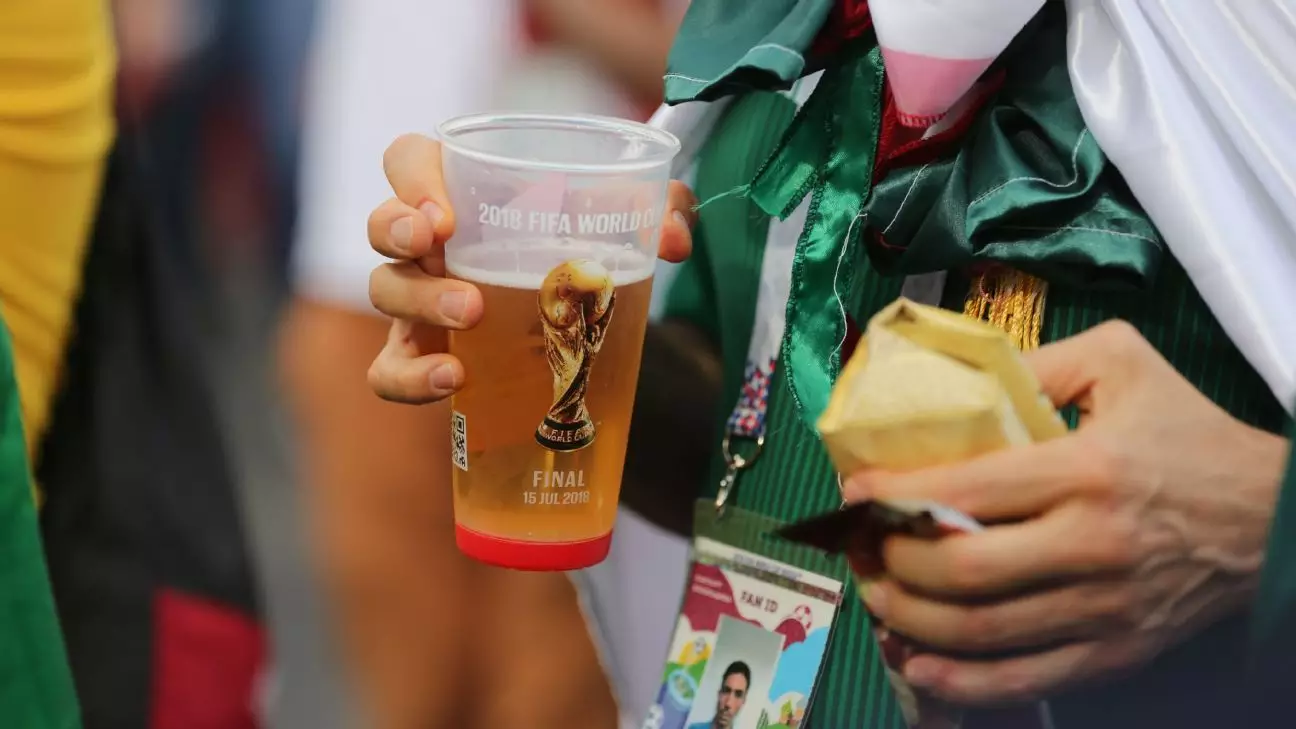The upcoming World Cup in Saudi Arabia in 2034 is poised to be a rich tapestry of sport and cultural exchange; however, it is not without its controversies. As the nation prepares to host one of the most-watched sporting events on the planet, the announcement by Prince Khalid bin Bandar Al Saud regarding the prohibition of alcohol has sparked discussion about cultural norms and individual freedoms. The ambassador’s statements underline the complexities of hosting an international event in a nation with stringent laws rooted in Islamic values.
Prince Khalid’s assertion that alcohol will not be sold during the tournament reflects a broader cultural ethos prevalent in Saudi society. The Kingdom’s strict adherence to Islamic laws prohibits the consumption of alcohol, and the ambassador emphasized the importance of respect for these traditions. When speaking to the UK media outlet LBC, he confidently reaffirmed, “Plenty of fun can be had without alcohol,” underlining a philosophy that promotes social gatherings devoid of intoxicants. This staunch position raises questions about the flexibility of cultural practices when they intersect with international audiences.
While the ban mimics the earlier alcohol regulation discussions surrounding the 2022 World Cup in Qatar, it also raises eyebrows about the potential experience for foreign fans. Previously, Qatar altered its stance on alcohol sales in response to international scrutiny, reflecting the challenges of reconciling traditional values with the expectations of global spectators. It provokes curiosity: Will Saudi Arabia adapt its policies, or maintain its rigid stance across a world event?
As much as the World Cup aims to unify nations through sports, it also casts a spotlight on human rights issues prevalent in Saudi Arabia. Advocacy groups have expressed concerns regarding the treatment of migrant workers and the potential risks faced by LGBTQIA+ individuals, noting historically severe penalties for those partaking in same-sex relations. When tasked with reassuring fans about their safety while attending the tournament, Prince Khalid’s comments lacked specificity. While he claimed, “We will welcome everyone in Saudi,” it remains essential to consider the lived realities of these populations within the region’s context.
The dichotomy between hosting an event meant for global unity and the sociopolitical climate of Saudi Arabia creates a critical tension. The broader implications of these discrepancies test the hospitality that the Kingdom aims to project, challenging the global narrative surrounding inclusivity in sports.
As the 2034 World Cup approaches, the unique cultural landscape of Saudi Arabia will undoubtedly influence the event’s reception on a global scale. While the nation hopes to showcase its heritage and hospitality, walking the tightrope between tradition and modernity poses challenges. The prohibition of alcohol, alongside serious concerns regarding human rights policies, serves as a reminder of the complex interplay between sports and culture. The world will be watching, and as fans gear up for the monumental occasion, questions regarding acceptance, enjoyment, and safety will echo throughout the discourse surrounding the tournament—demonstrating that the intersection of culture and sport is always fraught with challenges that reach far beyond the playing field.

Leave a Reply